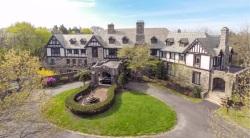![]()
As with most things in life, there are benefits and drawbacks to being a gifted child. There are also pros and cons to the structure under which we attempt to educate them as students.
The very things which are proposed to benefit the gifted student can also play a role in frustrating, stunting, or socially ostracizing them. The following are four areas in which careful pondering of the net value of participation in school approaches toward working with your gifted child are warranted.
Initial Identification of Gifted Students and Academic Approach
In spite of all of our years spent studying the topic of giftedness, there is yet no concrete definition by which to measure it. Schools have traditionally employed tactics which range from reports of I.Q. scores; to scores on state tests; to teacher or parent recommendations for inclusion in gifted programs.
With such varied approaches, there is as much of a chance that your gifted child will be overlooked as there is that a hard-working, average, child will end up being identified as gifted.
Even with proper identification methods in place, there remains the problem of how to best serve those who are gifted. Research shows that schools are wildly varied in their approach toward serving this population. Tactics range from deemphasizing differences to grouping students by ability.
Recommendation for levels of academic content range from pushing these students far beyond their peers, to ensuring that they do not become academically isolated. At every level, the disagreement as to what a gifted child is – and needs – is apparent in our schools.
At the end of the day, it behooves parents of the gifted child to work as an advocate on their student’s behalf. With the lack of solid information and resources regarding giftedness which are made available to schools and teachers, it is unreasonable to consider that these institutions are solely capable of meeting the individualized needs of your gifted student.
Finding a well-qualified school can be a boon, but your gifted child will need your intervention, as a parent, to ensure that overall needs of quality education are met.
Ambiguity of Gifted Programs
The go-to process, once a student has been recognized as excelling beyond his or her peers in class, is to enroll the student into the school’s gifted and talented program. While this may provide a good start, studies have shown that the typical gifted program does very little in the way of fostering a gifted child’s abilities.
Particularly during the elementary school years, students in such programs are not observed as receiving any empirical benefit in their areas of expertise. These programs tend to focus on skills which are more broad, such as problem solving; creativity; and critical thinking.
As can be commonly noted, gifted children tend to foster these particular abilities on their own, and the argument can be made that the time spent within such a school program is not being utilized to its fullest potential.
The primary benefit of such programs appears to be that the gifted child is permitted to socialize with others of a common intellect or propensity. This can enable the gifted student to foster a self-identity which includes the conception that what makes him or her different from average peers is also something which is cherished and valued within our community.
When weighing the academic value of enrolling our gifted students into such programs, it is useful to also factor in the potential social benefits.
Utilizing Gifted Students as Leaders
Most of us can conjure up images of the quintessential teacher’s pet, set on polishing apples and tattling on fellow students. It is a natural response of teachers to want to place those of apparent ability into positions of usefulness, and the skill-set of a gifted student often provides ample opportunity to be placed in these administrative and tutoring roles.
While some gifted students may thrive under such conditions of leadership, others may become stressed; overwhelmed; or even haughty.
Simply possessing the ability to complete a higher level task does not imply that one is equipped with the skills or desire to utilize it in the service of others. Factors such as levels of introversion or extroversion; social adeptness; and personal interests need to be weighed when calling upon our gifted students to assume such roles.
It may look great on their eventual college applications or resumes, but a reluctant stint of public service can leave a bad taste for leadership in your gifted student’s mouth. It could be that their developmental time is better spent on tending to their own academic, artistic, and social needs. It is these types of successful adolescent developments which pay off over the long run.
Risks of Pigeonholing Talent
Once a particular propensity toward mastering a subject area has been identified, there is a temptation for educators – and parents – to steer a gifted child in the career direction that is considered most suited to the skill set.
A student who is gifted in math may be pushed into studying the sciences; a linguistically gifted student may be pushed toward humanities or communications; and an artistically gifted student may be pushed into the arts.
If the gifted child is on board with this, it can be a match made in heaven. If not, we can be setting our gifted student up for frustration, depression, and failure.
It is important that the areas of study that our gifted students engage in are not only tailored to their abilities, but also tailored to their areas of personal interest. A longitudinal study on the factors which contribute to eventual success and satisfaction for the adult, gifted, individual show that personal interest in a career choice – combined with proper environmental support – is what makes the difference in eventual life quality.
For the gifted person, reaching contentment in career and life achievement is dependent upon finding a match between natural ability and personal passion. A school which recognizes and fosters this complex dynamic is doing our gifted children a service.






